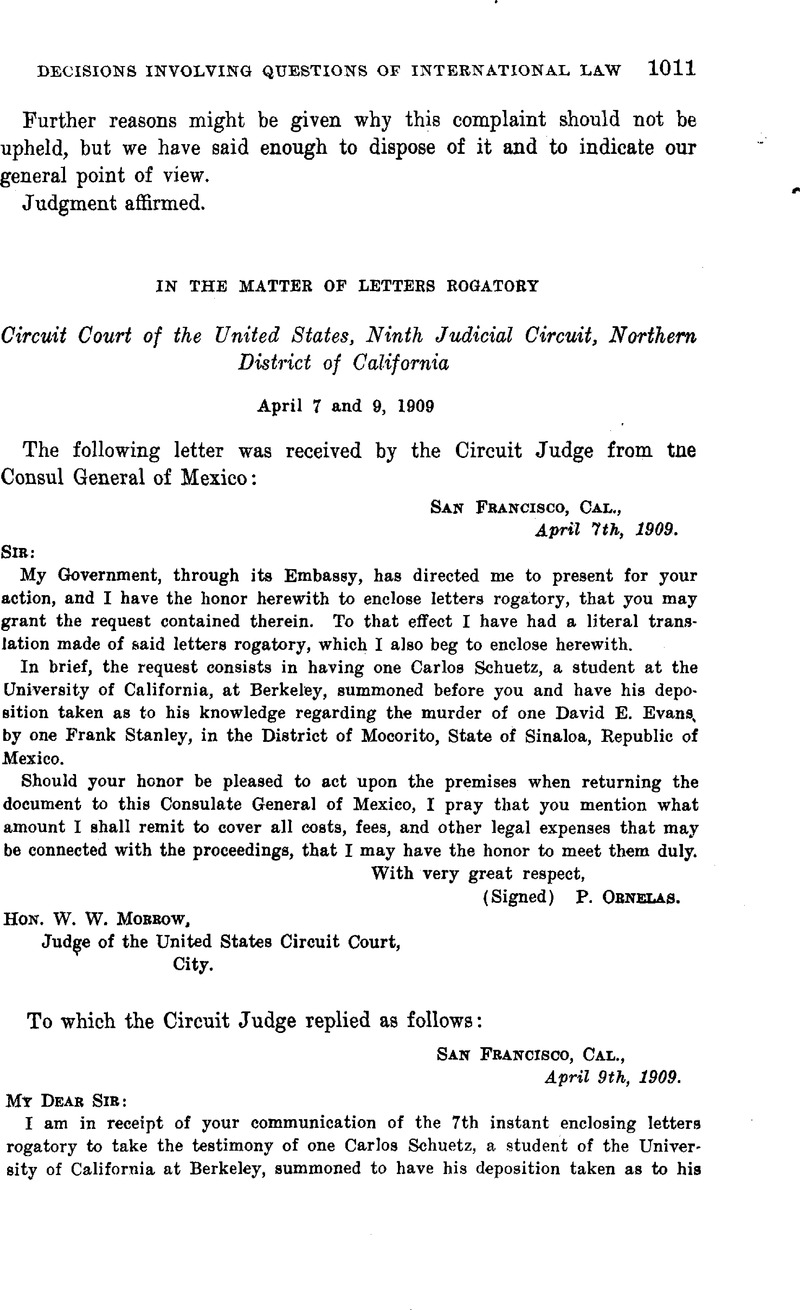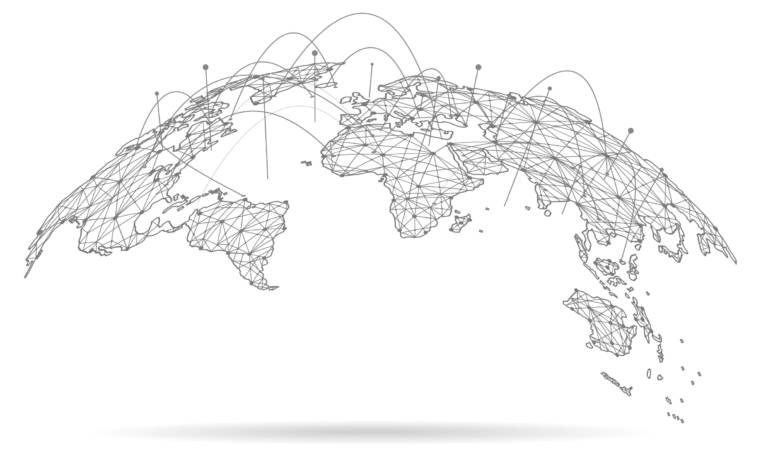The Process Involved in Declaring Letters Rogatory: A Step-by-Step Overview
The Process Involved in Declaring Letters Rogatory: A Step-by-Step Overview
Blog Article
The Role of Letters Rogatory in International Legislation: Secret Insights
Letters rogatory serve as an essential instrument in global legislation, helping with cross-border lawful help by allowing territories to formally ask for evidence and activities from one another. What effects might these challenges have for future legal procedures?
Definition of Letters Rogatory
In the world of international regulation, letters rogatory act as official requests issued by a court in one territory to seek assistance from a court in one more territory. Letters rogatory. These requests are particularly substantial in cross-border legal procedures, where the enforcement of a court's order or the celebration of evidence might be hindered as a result of jurisdictional limitations

The process normally needs the requesting court to verbalize the certain info or activity required from the international court, sticking to the lawful methods and conventions developed between the territories entailed. Once released, the letters rogatory are transferred via polite networks, which might consist of consular offices or consular offices, to make certain that the demand is identified and acted upon by the foreign court. On the whole, letters rogatory exhibit the cooperative structure vital for effective worldwide legal processes.
Historic Context
Although the method of letters rogatory has old roots, its formalization within the structure of international legislation arised substantially in the 20th century. Historically, such ask for judicial support were made use of in various lawful traditions, including Roman regulation, where they helped with cross-border participation in legal issues. The concept obtained restored attention with the increase of globalization and the raising complexity of international lawful interactions.
The mid-20th century saw the facility of treaties and conventions that looked for to standardize the process of letters rogatory. Significantly, the 1970 Hague Convention on the Taking of Proof Abroad in Industrial or civil Issues gave a structured method, boosting the efficiency of these requests - Letters rogatory. This period marked a change from casual arrangements to a much more methodical structure, which addressed the challenges presented by varying nationwide legal systems
As states ended up being extra interdependent, the need for efficient systems to collect proof throughout borders ended up being apparent, strengthening the function of letters rogatory in facilitating international teamwork. Today, they remain a vital tool for getting evidence and ensuring that justice transcends national boundaries, reflecting the progressing nature of worldwide legislation in feedback to international obstacles.
Process of Issuing Requests
The process of issuing letters rogatory generally includes several vital steps developed to make sure that requests for judicial support are clear, certain, and certified with both residential and worldwide legal criteria. A party seeking assistance has to prepare an official request that outlines the pertinent realities of the situation, the relief looked for, and the particular evidence or statement required. This record needs to be crafted with precision to fulfill the legal needs of the territory in which it will be sent.
Following the prep work of the request, it is sent to the proper authority, typically a court or a designated governmental firm. This authority examines the request to guarantee it abides by lawful standards and step-by-step standards. When approved, the request is sent to the foreign territory through polite networks.
Upon receipt, the international court evaluates the demand's conformity with its local regulations and practices (Letters rogatory). If accepted, it continues to execute the request, which might involve the issuance of subpoenas or the collection of evidence. Throughout this procedure, maintaining clear interaction in between the requesting and getting territories is important to make certain successful teamwork and the gratification of the request
Difficulties and Limitations
Obstacles and limitations frequently occur in the procedure of implementing letters rogatory, frequently coming from varying lawful systems and procedures between jurisdictions. One considerable obstacle is the differing standards of visit the website admissibility for evidence, which can cause complications in the acceptance of paperwork asked for through letters rogatory. Furthermore, the absence of harmony in lawful terminology and definitions can produce misconceptions, making complex interaction in between courts in various countries.
Moreover, delays are common because of governmental processes, as the request may need to pass with numerous layers of lawful authorities prior to it is fulfilled. his response In some instances, the requested jurisdiction may lack the necessary resources or determination to coordinate, better impeding the process. Language obstacles also contribute to difficulties, as precise translation of lawful papers is vital for ensuring that the intended message is communicated without distortion.
Last but not least, sovereignty issues may emerge, as some states are unwilling to abide with requests that they perceive as infringing upon their lawful freedom. These difficulties highlight the complexities inherent in the usage of letters rogatory, demanding higher harmonization and collaboration among global lawful systems to enhance their performance.

Effect on International Cooperation
Recognizing the relevance of letters rogatory in cultivating international teamwork is crucial, as these requests promote cross-border legal help and promote collective initiatives in civil and criminal issues. By making it possible for one jurisdiction to formally ask for support from another, letters rogatory produce an organized lawful framework that boosts the effectiveness of worldwide interaction in between judicial authorities.
The usage of letters rogatory aids go now to develop shared depend on and regard among nations, which is necessary in a significantly interconnected globe. They offer as a system not just for gathering evidence however also for guaranteeing that legal processes are supported across boundaries. This is particularly important in combating transnational crime, where the inability to safeguard participation can undermine justice.
Moreover, the reliance on letters rogatory can streamline complex lawful process, lowering hold-ups and uncertainties in global investigations. The step-by-step safeguards inherent in this procedure contribute to the protection of specific civil liberties while assisting in teamwork among states. Ultimately, the impact of letters rogatory on global participation emphasizes their duty as crucial devices in the promo of justice, fostering a collaborative spirit that transcends nationwide limits and legal systems.
Final Thought
In final thought, letters rogatory serve as a crucial tool in international law, assisting in cross-border lawful assistance and collaboration. The continued advancement of these devices is important for improving the efficiency of global lawful procedures, inevitably fostering stronger collaboration in both civil and criminal matters across jurisdictions.
Letters rogatory offer as a crucial tool in global regulation, facilitating cross-border legal support by allowing jurisdictions to formally request evidence and actions from one another.The procedure generally requires the requesting court to articulate the specific information or action required from the international court, sticking to the lawful procedures and conventions established between the jurisdictions involved. Historically, such demands for judicial aid were made use of in numerous legal customs, including Roman legislation, where they promoted cross-border participation in lawful matters.The process of releasing letters rogatory commonly entails a number of vital steps designed to ensure that demands for judicial help are clear, particular, and compliant with both worldwide and domestic lawful requirements.Moreover, hold-ups are typical due to bureaucratic procedures, as the demand may require to pass with multiple layers of lawful authorities before it is met.
Report this page